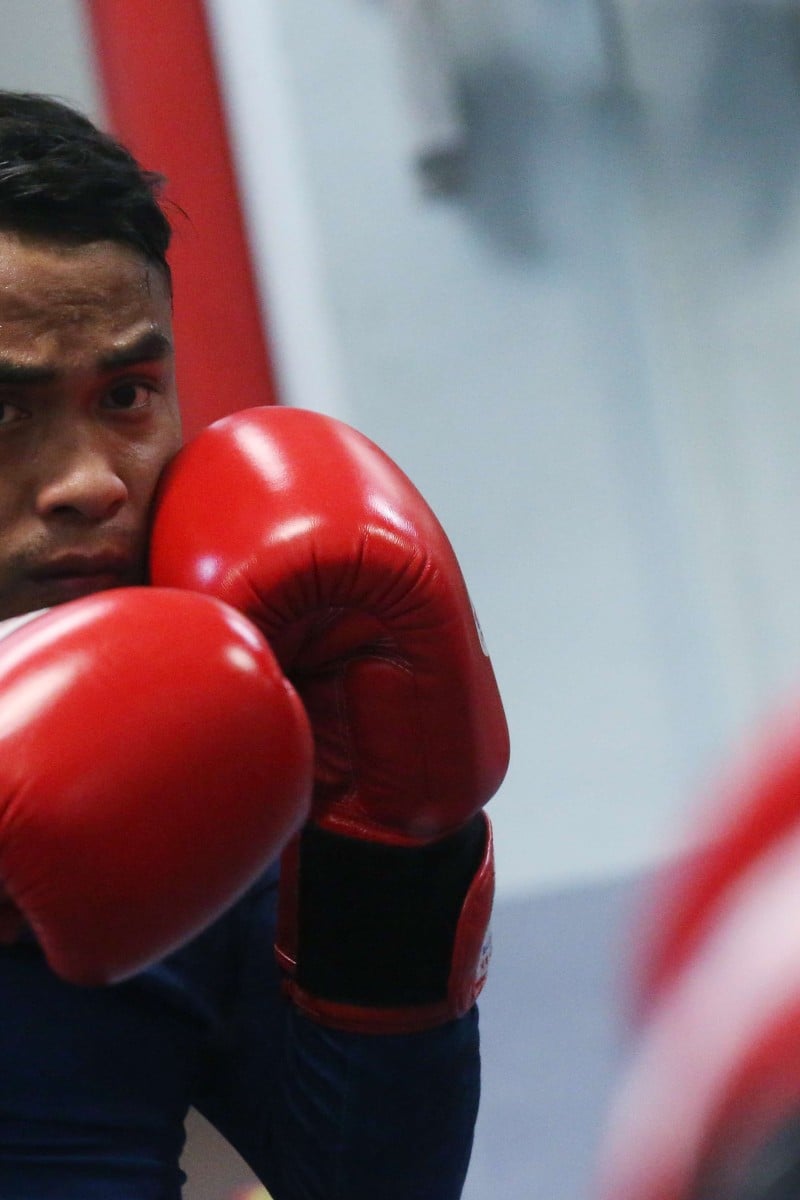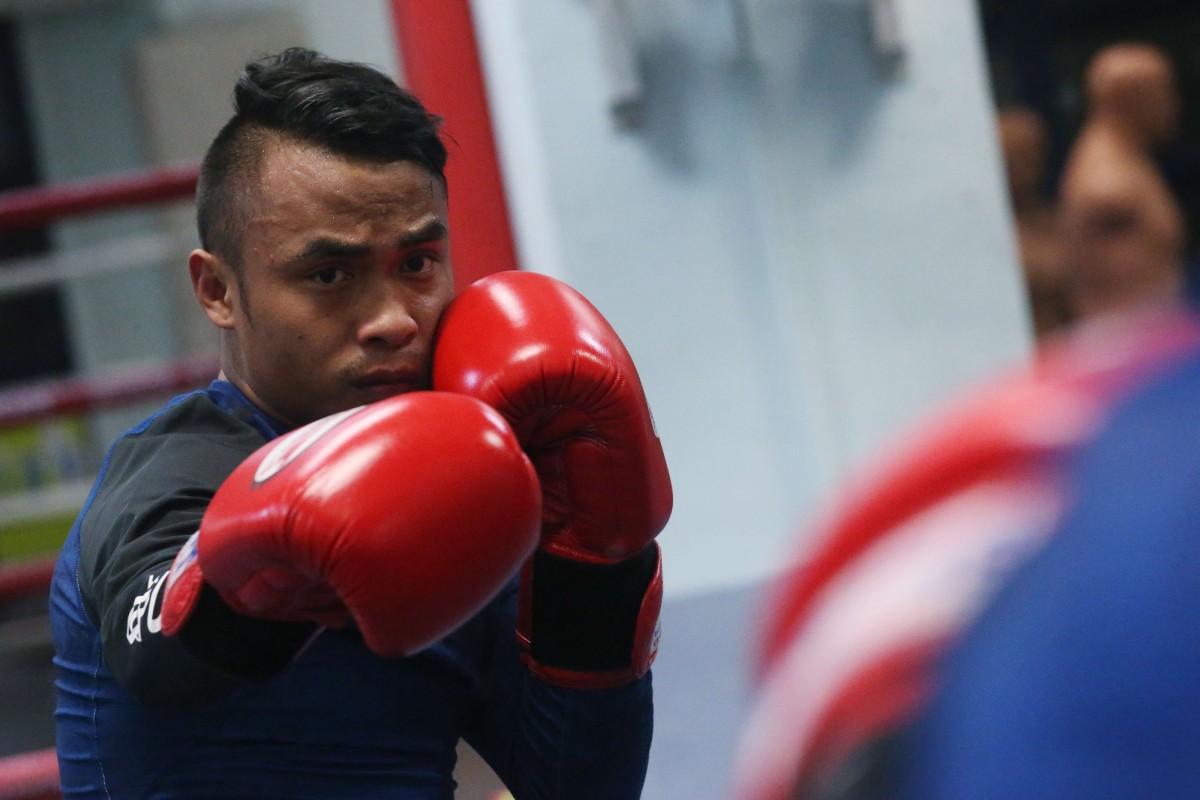
Here’s how local youths are boxing their way out of trouble through police's Operation Breakthrough
Boxing is more than just a sport for some young people in Hong Kong – it’s something that can and does change their very lives
 Boxing instructor Surez Gurung says that boxing kept him out of trouble as a teenager.
Boxing instructor Surez Gurung says that boxing kept him out of trouble as a teenager.Fresh off a resounding win during Hong Kong’s latest boxing spectacle Clash of Champions 2, Surez Gurung returns to the gym carrying more than just his own weight on his shoulders.
Professional boxer Gurung, 27, doesn’t have an ordinary schedule. On top of a little personal fine-tuning, he teaches boxing to local youths who have joined Operation Breakthrough, a programme organised by the Hong Kong Police Force.
Operation Breakthrough was launched in 1996 by the Tuen Mun Divisional Operations Commander Daniel Lawley and the then-Hong Kong Police Special Duties Unit Commander Barry Smith. Following a rise in the youth crime rate at the time, Lawley came up with a way to help rehabilitate young offenders from disadvantaged backgrounds, under the motto “Sport can change lives”, and Smith was soon drafted in to assist. The aim was to use sport as a means to steer wayward teenagers towards a more positive and safe environment. Breakthrough initially began as an adventure course, but the boxing component of the course was the main hit with recruits. After that, boxing became the first sport offered by Operation Breakthrough.
The Chairman of the Police Boxing Club, Francis Carroll, explains that Breakthrough boxing is much more than just providing young people sports classes – “It teaches discipline, confidence, and social skills. We want the kids to feel valued. We want to see collective development.”
Carroll stresses that coaching and mentoring is conducted by current and former police officers, as well as associated members of the community, all of whom devote their own time to the programme.
Most importantly, he adds, “We are completely non-denominational – we do not favour any particular culture.”
Nepal-born Gurung, who works closely with Carroll, remembers the Operation’s first sport adventure weekend: “It was hard to break the ice at first because [the youths] didn’t like that they were training with the people who had arrested them. But after spending a week together, they started to build friendships. That’s how it started off.”
Gurung would know – the Breakthrough mentor was once that youngster. At 14, he had been arrested and was given a Superintendent’s discretion following an altercation between his friends and another group. The Superintendent introduced Gurung to a new police boxing programme – an opportunity which he took with both hands. “I was very lucky. Police boxing has given me the motivation to work for something and to stay positive,” he says.
Having won over 20 amateur fights with the police programme, Gurung made his professional debut in 2012 and he’s never looked back. His most recent win puts his professional record at three wins and one loss, and he wants to transfer his love of boxing on to the next generation. “We’re like a family here. The kids can train for something good – boxing teaches them discipline and self-respect.”
Gurung’s is just one of several success stories that have come out of Operation Breakthrough’s boxing division.
Current Breakthrough recruit Muhammad Mohsin Khan, 20, had never imagined boxing would become such an integral part of his life. Khan was crowned flyweight champion at this year’s Inter-school Boxing Championship.
“We went there and I thought ‘I don’t think I can win this,’ because there were so many fights,” he says. “But I made it to the final and won.” Khan believes the programme works for certain types of teens because it teaches them discipline, and encourages them to only fight when they’re inside a boxing ring. “Before boxing, I’d get angry easily, but after [I picked up boxing] I [began to know] what real fighting was,” he says.
For many ethnic minorities in Hong Kong like Khan, it can be difficult to fully integrate into the city’s culture. Operation Breakthrough helps to ensure that young people from immigrant communities are not left behind or isolated. “When I first came to Operation Breakthrough, my English wasn’t very good. Surez [Gurung] told me what to do and what not to in Hindi. He taught me a lot.”
It’s still full steam ahead for Operation Breakthrough in 2017. The programme now includes boxing, rugby, football, contemporary dance, sailing, basketball, athletics, lion dance, judo and dragon boat racing.
So far, 12 Breakthrough recruits have gone on to become serving police officers, two are firemen, and one is a social worker. Perhaps, most promising of all, is that the reoffending rate is at 3 per cent. Not bad for a bit of boxing.
